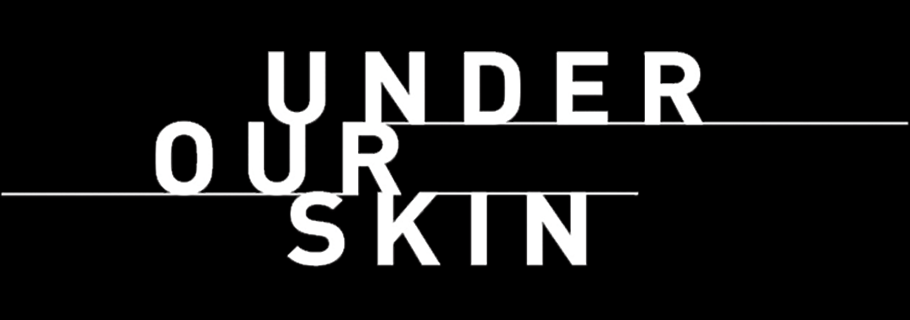Do you remember Benjamin Watson’s Facebook post from November 14, 2015? The news had just gone out that a St. Louis County grand jury had decided not to indict Ferguson police officer Darren Wilson in the shooting death of Michael Brown. Watson, a professional football player, took to Facebook with a post that would soon be “liked” nearly a million times and shared more than half a million more.
Watson received significant amounts of both praise and criticism for his words. It came as no surprise to me that he was soon invited to switch genres and to turn his brief article into a full-length book. The result is Under Our Skin: Getting Real about Race–And Getting Free from the Fears and Frustrations That Divide Us.
Let me tell you why I found his book especially helpful. The farther I am from a situation, the more difficult it is to understand it. I can easily enough put myself in the shoes of someone who is very much like me. I have a natural advantage when it comes to understanding situations involving middle-class Caucasian Canadian Christian men. But the farther afield I go, the more difficult it becomes to understand and empathize with others. If there is any hope of even beginning to understand something as far from my experience as America’s struggle with race, I need to listen (or read, as the case may be)—I need to listen, consider, and believe the experiences of trusted people.
Watson is just that kind of trustworthy voice. In Under Our Skin he explains how and why the African-American experience is unique, necessarily distinct from the white experience. Reading his book was a very helpful exercise because it showed why two people can live in the same country, same state, same city, and even same neighborhood but have very different experiences because of their race. “Black people and white people see the world through completely different lenses. The racial divide is about the reality each side sees. Each side believes its view is the true reality, and we can’t understand why the other side doesn’t see the same thing and understand our reality.” We all believe that we see the world as it really is, yet we see only our perspective. This is why it is so important to do what we can to see it from alternate perspectives as well. The truth undoubtedly lies somewhere between.
Of particular help was his explanation of the differing views of authority and especially police authority. “I believe that white people look at law enforcement and assume it is good, based on their experiences and interactions with the police. And I believe that black people look at law enforcement and assume—based on patterns and history and experience—that someone is out to get them. I believe both are true.” He goes on, “White people have no idea of the fear that black people feel toward the police. I cannot say that strongly enough, loudly enough, or forcefully enough. I believe it is a huge point of division between black people and white people. Black people have little expectation of being treated fairly by police in any situation. We have a high expectation of being demeaned, abused, and possibly treated violently in any encounter with law enforcement. We have a history that supports this, news headlines that shout this, and personal experiences that confirm this. This is a reality that white people simply don’t know.” And yet he also challenges his own community: “I guess I really do understand why it’s so hard to obey a policeman. But here’s a reality that many black people don’t know: Somehow, some way, we have to get over it. We have to suck it up and obey when we are called to. We really must learn the practical value of obeying a policeman, if only to save our own skins sometimes.”
At its core, the issue is not about race. It’s about the human heart.
Watson writes from a position of constructive, measured anger—anger meant to spur appropriate action. “Five generations and 150 years have passed since the abolition of slavery. You’d think that after all this time we’d have reached real parity between the races, that there would be truly equal opportunity, and that we’d be seeing and experiencing fairness in society between blacks and whites. A lot of white people believe that’s actually where we are. A lot of black people know we aren’t.” He writes equally from a position of hope, and the best kind of hope—hope that is grounded in a deep and confident understanding of what God has already done and what God means to do in the world. Time and again he makes it clear that “At its core, the issue is not about race. It’s about the human heart.”
It’s even about his own heart: “I have to look inside my own heart and see what lurks there, what assumptions about white people I’ve formed, and what prejudices I still harbor. I confess I have prejudices and I make assumptions about white people as a whole, even though some of those assumptions have been proven wrong through individual relationships. I confess that I generalize such prejudices across the entire race. I confess I’ve harbored thoughts against white people that, while perhaps not harshly racist, have been judgmental and hurtful.” We have probably grown wearily accustomed to athletes who tack Jesus onto their lives as a kind of superstitious afterthought, but this is clearly not the case with Watson. He is a man who gets it—who gets the gospel and its implications for all of life.
Under Our Skin is a good book to read and absorb, to read and consider. In that way it is a valuable entry-level primer on issues of race and a thoughtful, articulate expression of the African-American experience. It invites the reader into the heart and mind of someone who may just see the world quite differently from him. This is a measured, balanced, and downright helpful work on a difficult issue. I am glad I read it and eagerly invite you to do the same.










